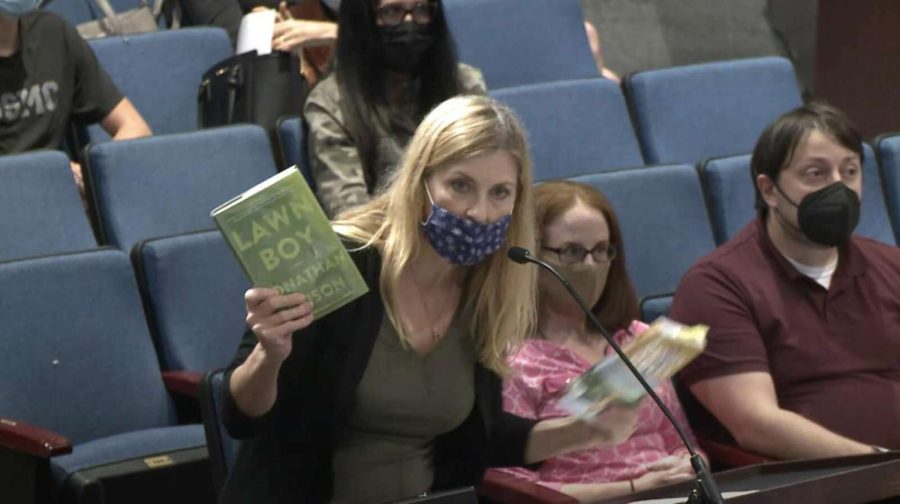Since the start of the pandemic, parents have organized for and against the reopening of schools, popularizing the debate of how much power parents should have over schools. Traditionally, parents have been able to make their voices heard through community involvement.
The Fairfax County School Board is elected by parents in the county every four years, and regularly provides opportunities for community members to be heard at school board meetings.
“They hold hearings, town halls and have open office hours where they see parent interest in certain initiatives and get feedback,” English teacher Anna Caponetti said.
At the school level, parents can also collaborate with teachers to design programs, allowing them to become directly involved in public education.
“We work closely with the [Parent-Teacher-Student Association],” Caponetti said. “The PTSA can determine grants for different programs [we want to pursue].”
One of the largest topics of debate regarding parents’ rights has been parents’ ability to determine what is being taught in the classroom. In late 2021, parental efforts led to the removal of LGBTQ+ literature from school libraries before widespread protests and a committee review led to the books being added back.
“In the English department… we have to go through Regulation 3005 [with the books we read],” Caponetti said. “We have to get books approved and a parent sits on the approval committee to screen and read the books and hear the arguments.”
Apart from the debated LGBTQ+ literature earlier this school year, there have been concerns about a variety of other texts that were taught for diversity and inclusion. When taken out of context, they can be misperceived.
“[Childish Gambino’s “This is America,]” was taught very early on in 11th grade for the past few years,” Caponetti said. “Last year… it raised some concerns and was suspended. I think a lot of knee jerk decisions are being made.”
Currently, Governor Youngkin’s controversial executive orders signed on January 15 question the limits of parents’ rights. Namely, Executive Order 1 bans critical race theory and “ensures that parents are empowered with open access to information on primary instructional materials utilized in any school.” Executive Order 2 allows for parents to choose whether or not their child will follow school district mask mandates.
“My concern is the safety of all of the children,” McLean parent Pamela Huffman said. “If my daughter is masked and then the other kids are masked, it’s doubled the protection. But if the other kids are not masked, it feels scary for me to have [my daughter at school].”
Fairfax County Public Schools’ school board and six other boards filed a lawsuit against Gov. Youngkin’s Executive Order on the mask mandate, arguing that it violated the Virginia’s Constitution. Fairfax County Public Schools is part of many Northern Virginian school districts that have decided to keep a mask mandate.
“I feel really heartened, by the way that FCPS and the other six school districts are responding to the executive order,” Huffman said. “[As kids get older] I feel like it becomes… more of their job to advocate for themselves or to ask for what they want, rather than parents.”
On Jan. 26, Governor Youngkin launched a tipline to report “divisive” teaching methods, appealing to his voter base’s concerns about Critical Race Theory. Some teachers believe the decision will cause issues with staff retention amid a teacher shortage.
“This McCarthyistic setup, where you tattle on teachers who are not following a particular politicized ideology to get them fired, or in trouble or blacklisted… is not conducive to retaining teachers,” Caponetti said.
Developments in the debate about parents’ rights are expected to continue, though the fate of certain cases such as the lawsuit regarding mask mandates are yet to play out.









